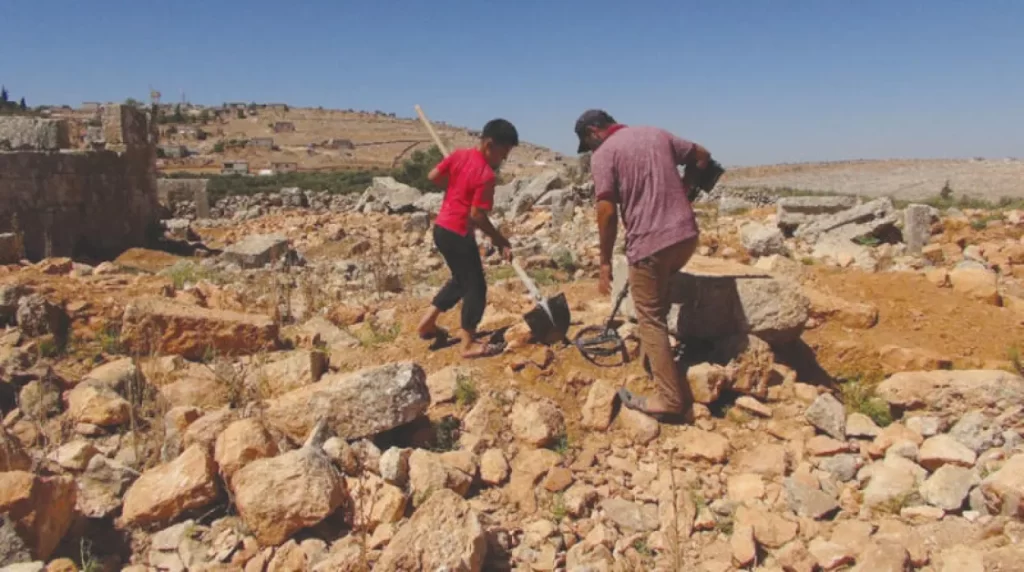If you’re planning a trip to Syria — a land rich in history and stunning archaeological sites — it’s important to be aware of a growing problem: illegal excavations and the underground trade of ancient artifacts.
Since the fall of the former regime, illegal digging has increased dramatically, especially in areas like Homs, southern Syria, and around Damascus. Many archaeological sites have been damaged, and priceless items have been smuggled out of the country. Unfortunately, this destruction is often done with heavy machinery and metal detectors, which ruin historical layers and erase important clues about ancient life.
Now, here’s the part you need to know as a visitor: some people may approach you and try to sell you old coins, tablets, or other ancient-looking items. Please don’t buy them. Not only is it illegal under Syrian law, but it’s also unethical.

Here’s Why You Should Never Buy These Items:
- It’s against the law in Syria.
Possessing or buying antiquities without proper authorization can lead to serious trouble, including jail time. If airport security finds one of these items in your luggage, you could face legal consequences — even if you didn’t know it was illegal. - You might be buying a fake.
Many artifacts on the black market are counterfeit and very hard to authenticate. So not only are you risking legal problems, but you could also be wasting money on something worthless. - If it’s real, it belongs in a museum.
Syria’s treasures are part of the world’s shared heritage. These objects help archaeologists learn about our past. Removing them from the country is like tearing pages out of a history book — pages that might never be recovered.
Imagine this: a tour guide in Syria tells you that the first alphabet was found here. You might be unsure until you see the actual clay tablet with your own eyes. These artifacts are living proof of civilization — they don’t belong on someone’s shelf but in a museum where they can be studied and preserved for all.
International Protection Efforts
Organizations like UNESCO have been working hard to protect Syria’s cultural heritage. They’ve set up special teams and created emergency “Red Lists” of endangered cultural items to help prevent smuggling and support recovery efforts. Even local groups like the Syrian Civil Defense have signed agreements to help protect sites from further damage during conflict or natural disasters.
The Bottom Line for Travelers:
If someone offers you an ancient coin or relic, walk away. Take photos, collect memories, and leave the treasures where they belong — in the earth, in the museums, and in the care of archaeologists and historians.
Syria’s history is not for sale, and together, we can help protect it. Spread the word, travel responsibly, and let’s keep this heritage alive for generations to come.
📌 “These treasures are not just Syrian – they’re a part of all of us.”

Well said Rami.
Thank you.